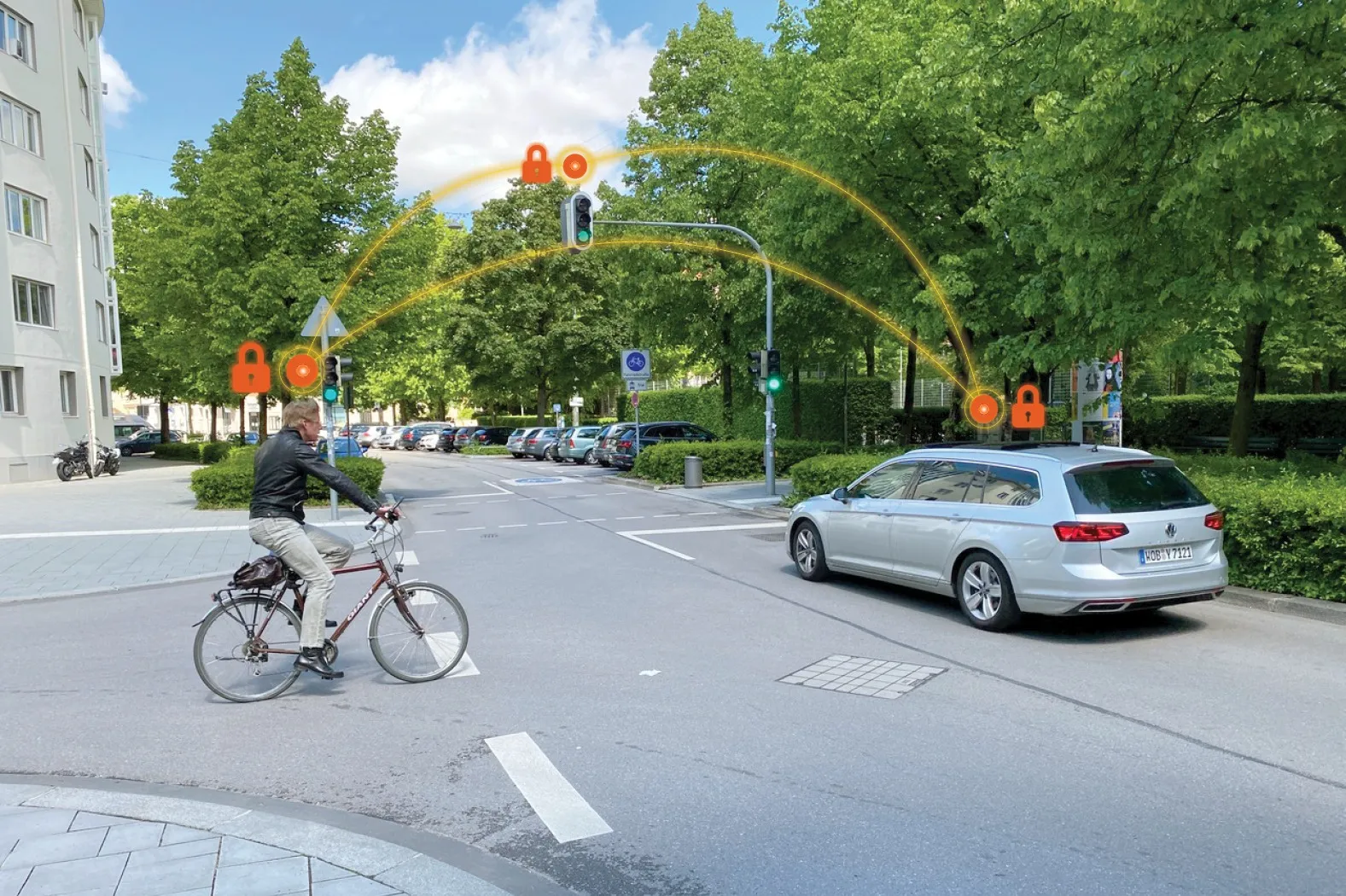
Autotalks is launching a platform aimed at preventing bike and scooter accidents with the use of Vehicle to Everything (V2X).
The Zooz platform is based on a V2X device installed on the handlebar of electric and non-electric bikes and scooters and a smart sign.
The device sends an alert when a vehicle equipped with V2X is endangering a cyclist and informs other V2X equipped vehicles and smart signs about the presence of the cyclist. It will be integrated into bike computers.
Autotalks says the smart sign alerts drivers, even those without V2X, when a bike or scooter with a device is entering an intersection.
All road users, including cars, bikers, scooters, motorcycles, and pedestrians will communicate with each other through V2X to form a safety network.
The Zooz device is expected to handle a variety of use cases, including a blind spot alert scenario that prevents a car turning right and cutting the bike lane. This alert helps prevent a situation where a driver is surprised by a bike hidden behind a curve on a countryside or mountain road.
In an intersection safety use case, Autotalks insists the platform prevents a scenario of a driver turning right or left while failing to see the cyclist entering the intersection.
According to Autotalks, the Zooz smart sign lights up when a V2X equipped bike or scooter is approaching the intersection, and it alerts all drivers, even those without V2X.
Autotalks founder Onn Haran says: “The surge in the use of micromobility has changed traffic patterns and led to a sharp increase in accidents. The percentage of bikes and scooters in overall traffic fatalities is constantly growing. 75% of accidents are caused by driver error, failing to notice the cyclists, who are small and obstructed by other vehicles.”
“V2X is the only automotive safety communication technology. It is the only technology that can connect bikes and scooters to vehicles, adding them to the safety network,” Haran continues.
“Zooz is the future of micromobility safety and is a concept of what we expect to see in every bike, scooter and car within five years. Our plan is to take the test one step further and install our technology on all vehicles, two-wheelers and road infrastructure.”










